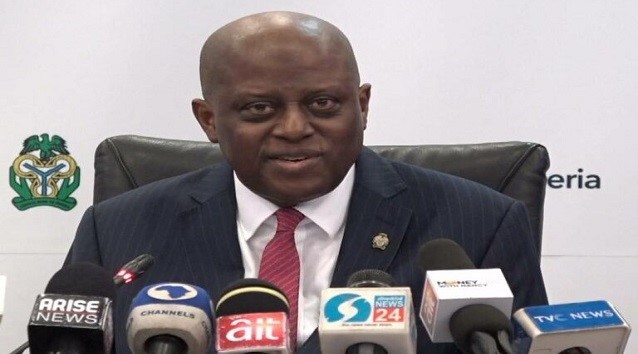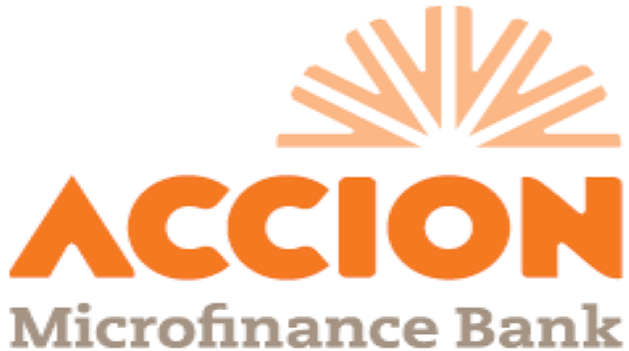E-Financial
CBN Puts Accumulated Savings, Liquid Assets by Nigerians at N75.65trn

Amid mounting macroeconomic uncertainty, Nigerians are leaning heavily towards savings and low-risk financial instruments, with recent data from the Central Bank of Nigeria (CBN) showing a marked increase in quasi-money holdings.

Quasi-money are assets that are easily and quickly convertible into cash. They are considered to be close substitutes for cash in the economy.
According to the CBN’s Money and Credit Statistics for March 2025, quasi-money, comprising savings deposits, fixed-term deposits and other liquid but non-transactional assets, rose to N75.65 trillion, representing a 3.65 per cent month-on-month (m/m) increase and a 26.42 per cent rise year-on-year, up from N59.84 trillion in March 2024.
The surge highlights a growing preference for capital preservation, as households and businesses seek refuge in interest-bearing instruments amid Nigeria’s ongoing economic slowdown.
“The rising volume of quasi money reflects both a cautious approach to spending and increasing trust in formal financial institutions,” said a senior analyst at Vetiva Capital. “It’s a defensive strategy by savers who are navigating inflationary pressures and volatile market conditions.”
The CBN has maintained a tight monetary policy for over a year, with high interest rates designed to tame inflation. This stance has made fixed-income securities, such as treasury bills and term deposits, especially attractive to investors.
In January 2025, the CBN’s auction for 364-day treasury bills saw an oversubscription of N1.47 trillion, with stop rates reaching 22.6 per cent. By mid-February, total subscriptions across tenors remained strong at N2.41 trillion, underlining sustained demand for secure, high-yield instruments.
The data also reveals that broad money supply (M2) grew to N114.20 trillion in March 2025, a 23.69 per cent increase year-on-year, with quasi money continuing to dominate M2 composition. Meanwhile, demand deposits rose to N33.96 trillion, up 17.65 per cent from the same period last year, while currency outside banks jumped 26.72 per cent to N4.59 trillion.
The central bank also reported mixed trends in domestic credit: Net domestic credit rose 12.47 per cent year-on-year to N103.37 trillion, though it dipped 1.20 per cent month-on-month.
Credit to the government grew 31.99 per cent to N25.86 trillion year-on-year but fell 4.63 per cent in March, suggesting a brief pause in government borrowing whilst private sector credit growth remained modest at 7.10 per cent pointing to conservative lending practices and subdued appetite for new debt in the real economy.
Analysts say the quasi-money uptick reflects a broader trend of financial system deepening, driven by digitization and formal banking efforts. The rise in savings could, over time, translate into stronger capital pools for lending, once macroeconomic stability returns.
While the flight to safety is a rational response to uncertainty, experts warn that over-reliance on fixed-income assets could limit economic dynamism in the long term.
However, for now, Nigeria’s financial landscape suggests that stability, not speculation, is the dominant mood among savers and investors.
E-Financial
AccionMonie App to Empower Low-Income Households

Accion Microfinance Bank has unveiled AccionMonie, a next-generation digital financial services platform aimed at empowering individuals, micro, small, and medium enterprises (MSMEs), as well as low-income households across Nigeria.

Speaking at the official launch in Abuja, Chief Executive Officer of Accion MfB, Taiwo Joda, described the introduction of AccionMonie as a significant milestone and a testament to the bank’s culture of innovation, designed to meet the evolving needs of its customers.
“At Accion Microfinance Bank, we believe in the potential of every MSME to drive inclusive economic growth. That is why we are committed to empowering them with the financial support they need to grow, innovate, and make a lasting impact in their communities and beyond,” Joda said.
He added that the app provides instant access to essential services including loans, savings, and other forms of financial support.
According to Joda, AccionMonie is a strategic component of the bank’s “Always There to Lend You a Hand” campaign, which underscores its commitment to small business development and the economic upliftment of underserved households. The campaign positions Accion MfB as not only a financial institution but also a trusted partner in its customers’ journey to prosperity.
Highlighting the economic role of MSMEs in Nigeria, he noted that with an estimated 37 million MSMEs, the sector accounts for 86% of employment and contributes 48% to Nigeria’s Gross Domestic Product (GDP). However, these enterprises continue to face major challenges such as limited access to finance, inadequate infrastructure, and an unfavourable business environment.
Also speaking at the launch, the bank’s Chief Commercial Officer, Stephen Olalere, said the combination of AccionMonie and the bank’s expansive network of over 74 branches across 12 states will help bridge the gap in financial service delivery to small businesses.
“The platform’s user-friendly features are designed to simplify payments and offer vital support to businesses and individuals alike,” he said.
Paul Ehiagbonare, Chief Digital Officer of the bank, described the launch as a bold step toward digital leadership and financial empowerment.
“For us, AccionMonie reflects customer empowerment through digital tools and technologies. It offers a range of customer-focused features designed to promote financial inclusion,” he said.
One of its standout features is Save2Loan, which allows users to save between ₦50,000 and ₦250,000 over a 90-day period and become eligible for a loan worth twice their saved amount. This, Ehiagbonare explained, will help promote a savings culture while enhancing credit access.
In addition, customers can conveniently fund their AccionMonie accounts using any debit card, eliminating the need for physical visits or long queues in banking halls.
E-Financial
Africa Launches PAPSSCARD, First Pan-African Card Scheme

Africa has marked a significant step towards financial independence following the launch of PAPSSCARD, the continent’s first Pan-African card scheme.

Professor Benedict Oramah, president and chairman of the Board of Directors, Afreximbank,
Unveiled on June 27 at the 32nd Afreximbank Annual Meetings in Abuja, Nigeria, the new card represents a major leap in Africa’s efforts to achieve financial sovereignty by building resilient and independent payment systems, easing people travel and boosting trade integration.
PAPSSCARD, a joint-venture between the African Export-Import Bank (Afreximbank), the Pan-African Payment and Settlement System (PAPSS) and Mercury Payment Services (MPS), enables fast, secure, and affordable retail payments across African borders. Currently, most African card payments are routed through global systems causing increased fees and loss of data control. By processing transactions entirely within the continent, PAPSSCARD keeps value, data, and economic benefit in Africa.
Speaking at the launch, Professor Benedict Oramah, president and chairman of the Board of Directors, Afreximbank, highlighted the significance of PAPSSCARD in reclaiming Africa’s financial autonomy.
“For too long, Africa’s reliance on external payment systems has impeded trade, increased costs, and compromised control over our financial data. PAPSSCARD changes that. It empowers us to move money swiftly, securely, and affordably across our borders. It is a transformative step towards strengthening intra-African trade and preserving value within the continent.”
Mike Ogbalu III, CEO of PAPSS, described PAPSSCARD as a major advancement in the continent’s financial architecture, noting that it is “more than just a payment tool, it is a powerful symbol of progress and a bold step towards financial independence.” He added that the card reflects Africa’s ability to create practical, home-grown solutions that align with how the continent trades, lives, and grows.
Muzaffer Khokhar, executive chairman, Mercury, said the launch represents a milestone in Africa’s move toward financial sovereignty.
“We are proud to support a system built by Africa, for Africa. This is about sovereignty, innovation, and building trust in African systems to shape the continent’s financial future. The PAPSS Card will become Africa’s most trusted payments brand, strengthening the backbone of the continent’s financial future.”
John Bosco Sebabi, acting CEO of PAPSSCARD, added that the new payment offering will unlock benefits for a wide range of stakeholders, from corporates and banks to merchants and individuals.
He said that the PAPSSCARD card would “reduce costs for public institutions, support innovation across the financial sector, and expand access to secure, modern payment tools for people and businesses across the continent.”
Commemorative cards were unveiled at the 32nd Afreximbank Annual Meetings to mark the launch of the PAPSSCARD.
This initiative was made possible by strategic partnerships with issuing banks – Bank of Kigali and I&M Bank Rwanda; Rswitch, Rwanda’s national switch – Smart Cash; and Unified Payments, ensuring its seamless acceptance throughout Nigeria.
African central banks and payment systems are set to spearhead the continent-wide adoption and rollout of the new PAPSSCARD.
This initiative will significantly advance Afreximbank’s strategy to promote financial inclusion and boost intra-African trade under the African Continental Free Trade Area (AfCFTA), fostering a more integrated and self-sustaining African economy.
E-Financial
Polaris Bank Backs Ethical Journalism with Strategic Media Support

Polaris Bank is set to host the 2025 edition of its Annual Media Capacity Seminar on July 17, 2025, from 10:00 AM to 1:00 PM. This year’s seminar is themed: “Empowering Journalists in the Digital Age: Storytelling, Tools & Transformation”, and will feature two distinguished facilitators: Taiwo Obe, Founder and Director of Journalism Clinic, and Abayomi Adisa, a Senior Journalist with the BBC.
Now in its 11th year, Polaris Bank’s Media Capacity Seminar has grown into a flagship media education initiative supporting journalism excellence and professional development across Nigeria. Since its inception in 2015, the program has trained over 5,500 journalists, equipping them with the contemporary knowledge and tools needed to thrive in an evolving media landscape and AI era.
The 2024 edition, held in a hybrid format, recorded over 500 participants and focused on “Integrating AI Tools in Contemporary Media Practices for Innovation and Excellence.” Participants gained insights into data journalism, fact-checking, multimedia storytelling, and the responsible use of artificial intelligence in the newsroom.
Building on last year’s success, the 2025 edition will explore critical aspects of modern journalism, including digital storytelling, transformative newsroom practices, and emerging tools that can help journalists remain relevant in practice and impactful in today’s information age.
Attendance at the seminar is free, but registration is mandatory. Interested participants can still register via bit.ly/PAMC2025.
Polaris Bank remains committed to promoting responsible journalism through robust, consistent and premium media education and investing in initiatives that foster a more informed and progressive society.

 Broadcasting2 days ago
Broadcasting2 days agoNigeria Week Ahead: Inflation, Oil and Naira in focus

 News2 days ago
News2 days agoEFCC: Accusations Against Our Chairman Are Baseless and Misleading

 Telecom24 hours ago
Telecom24 hours agoMTN Nigeria Targets $1Bn Cloud Market with Largest Modular Data Centre

 Telecom24 hours ago
Telecom24 hours agoNCC Introduces N10m Licence Fee for Bulk SMS Service

 E-Business1 day ago
E-Business1 day agoFirm Highlights Top Risks of Quantum Computing

 General News1 day ago
General News1 day agoAM Best Reaffirms Stable Outlook for Cyber Insurance Market

 Telecom24 hours ago
Telecom24 hours agoPAT Taps Osi as CEO

 General News24 hours ago
General News24 hours agoBurna Boy Distances Himself from Meme Coin, Labels Crypto as Fraud


























